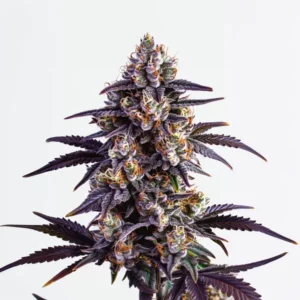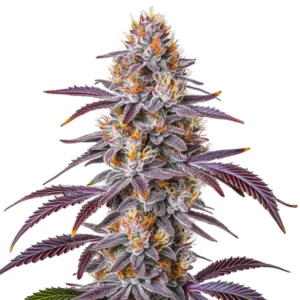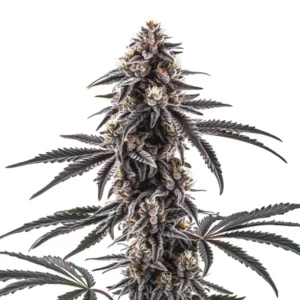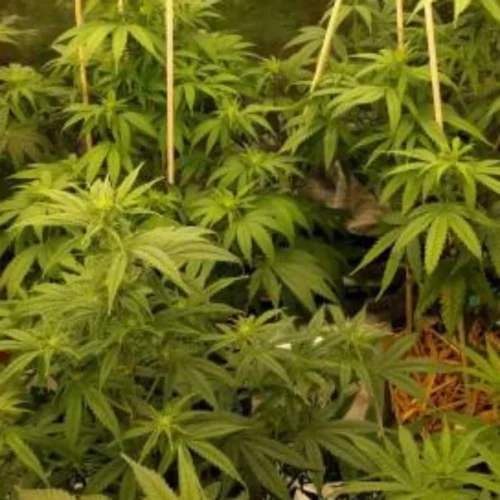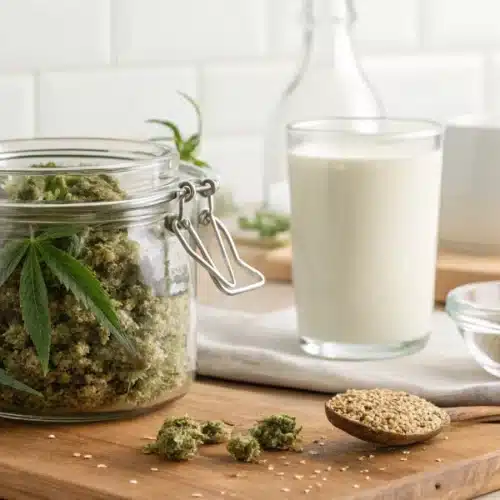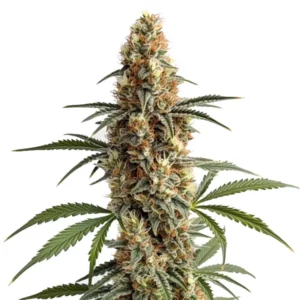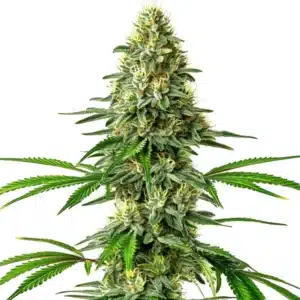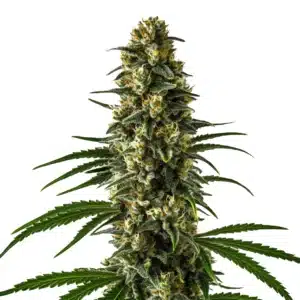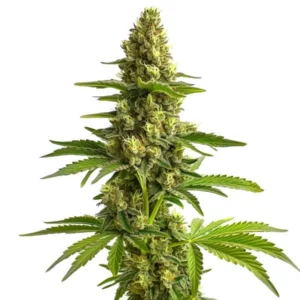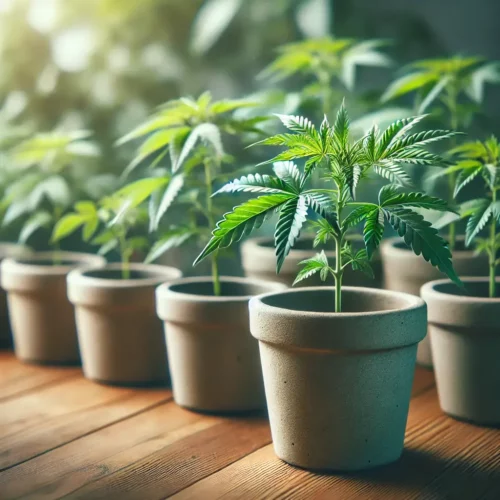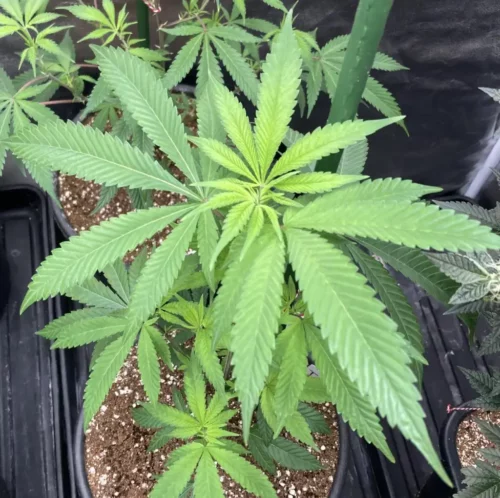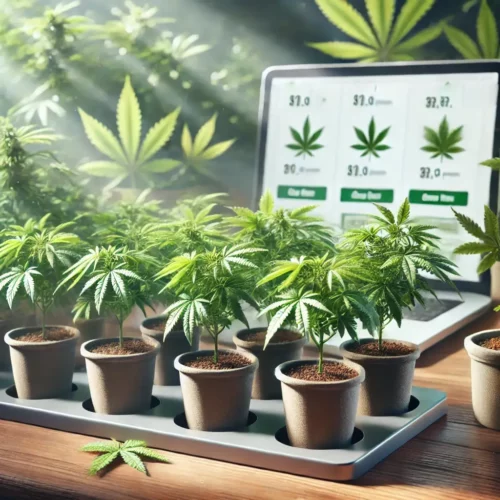The Advantages of Buying Pot Clones Over Seeds
When considering whether to start your cannabis grow from seeds or clones, buying pot clones can often be the smart choice for both beginners and seasoned growers. Clones offer significant advantages in consistency, ease of growth, and speed to harvest.
Clones Offer Predictability and Uniformity
When you buy pot clones, you know exactly what to expect from your plants. Unlike seeds, which can result in varied phenotypes even from the same strain, clones are genetic copies of the “mother” plant. This ensures uniformity in growth, potency, and bud structure across all your plants.
Whether you’re aiming for a heavy yield or a specific flavor profile, clones give you the consistency you need. A crop grown from seeds may surprise you with differences in plant size, flowering time, and even effects. But with clones, you’re guaranteed to get exactly what you’re paying for, every time.
Faster Growth and Earlier Harvests
One of the biggest advantages of clones is their head start on growth. While seeds need time to germinate and develop a solid root structure, clones are already well-established plants. By buying pot clones, you skip these early stages, allowing your grow to move directly into the vegetative phase. This cuts down on your grow time and gets you closer to that all-important harvest day.
For growers aiming to harvest multiple times a year, this time-saving factor is invaluable. Whether you’re growing indoors with a controlled environment or taking advantage of the sun in an outdoor garden, clones help you achieve faster, more predictable cycles.
Promos & Deals
What to Look for When Buying Pot Clones
Choosing quality pot clones is crucial for a successful grow. A healthy start sets the foundation for strong plants and bountiful yields. Here’s what you need to consider when selecting clones.
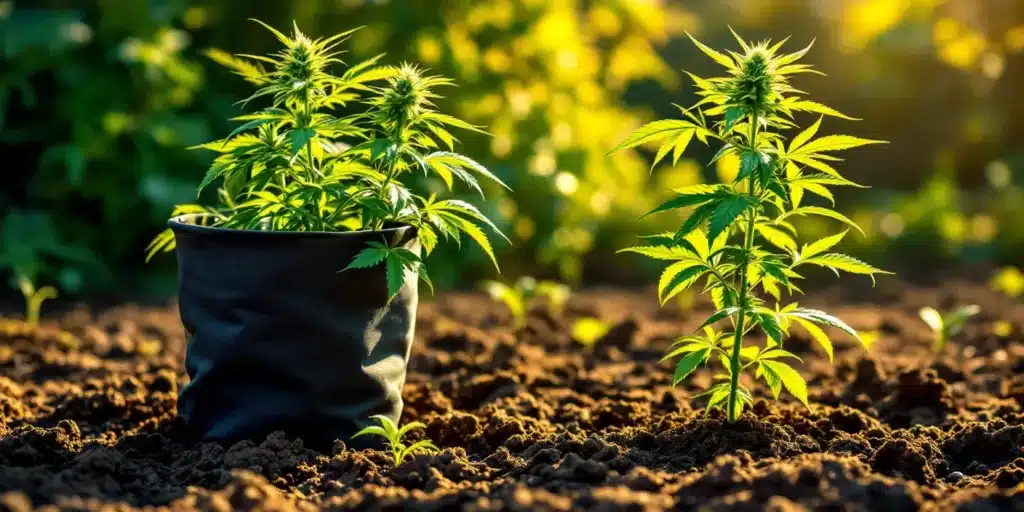
Inspect for Healthy Roots and Vigorous Growth
The health of a clone’s root system is the first indicator of quality. Look for visible, white or light beige roots that are strong and well-developed. These roots should be free of discoloration, pests, or signs of disease. Vigorous, white roots indicate that the clone has established a good foundation for nutrient absorption and growth.
The foliage should be vibrant green with firm stems and no signs of drooping. Leaves should be free of spots, pests, or any signs of nutrient deficiencies like yellowing or curling. A healthy clone will have a thick, sturdy stem and broad leaves ready to soak in light and begin their journey to maturity.
Choosing the Right Genetics for Your Growing Goals
When buying pot clones, consider the strain that aligns with your goals. Some strains are ideal for outdoor growing and can handle variable climates, while others are better suited for controlled indoor environments. Decide if you’re looking for high THC potency, CBD-rich effects, or a balanced hybrid that combines the best of both worlds.
Consider your grow space, lighting, and level of experience. For example, indica-dominant strains tend to stay more compact and are great for smaller grow rooms, while sativa-dominant clones might require more space and careful training.
Benefits of Buying Pot Clones Online
While local dispensaries and nurseries may carry clones, buying pot clones online offers unparalleled advantages, from variety and convenience to quality assurance.
Greater Variety and Selection at Your Fingertips
Online clone suppliers offer an extensive variety of strains, many of which may not be available locally. When browsing online, you can filter through clones based on your desired effects, growth requirements, and potency. Whether you’re looking for high-yielding strains, CBD-rich varieties, or clones with unique terpene profiles, the selection online is unmatched.
Verified Genetics and Quality Guarantees
Reputable online sellers pride themselves on providing verified genetics, ensuring you receive exactly what is advertised. They often work directly with breeders to offer clones from high-quality mother plants. This verification process means you’re buying healthy, pest-free clones that are genetically identical to their mother plant.
Online sellers may also offer quality guarantees, where they assure the clone’s health and viability. Should any issues arise during delivery, a trusted online supplier will often provide replacements or refunds, ensuring your investment is protected.
Convenient, Discreet Shipping and Delivery
The convenience of buying pot clones online cannot be understated. Online suppliers ship directly to your door, allowing you to start your grow without needing to make trips to a dispensary or nursery. Plus, they typically ship discreetly, ensuring your privacy.
When your clones arrive, they’re packed securely to prevent damage during transit, maintaining their health until they reach your grow space. This careful handling ensures your clones arrive ready to thrive.
Popular Strains to Buy as Clones
Strain selection plays an important function in the success of your grow. Some strains are easier to cultivate, while others may produce higher yields or offer unique effects. Here are some top strains that are favored for their quality and performance as clones.
Gelato 33
Gelato 33 offers well-balanced effects and produces dense, colorful buds with a high THC content. This hybrid is well-suited for both indoor and outdoor cultivation, offering resilience and consistent results.
Blue Runtz
A cross between Sunset Sherbet and Runtz, Blue Runtz produces eye-catching, resinous buds and a strong aroma. This strain thrives in various growing conditions, making it versatile for different grow setups
Jelly Cake
Jelly Cake is a balanced hybrid that produces large, resinous buds and is known for its sweet, earthy flavor. This strain performs well under a variety of growing conditions, making it a favorite for both indoor and outdoor growers.
How to Care for Your Pot Clones After Purchase
Receiving your pot clones in optimal condition is just the first step. Ensuring they adjust well to your grow environment and caring for them properly will set the stage for a successful grow.
Transplanting Clones into Soil or Hydroponic Systems
When you receive your clones, transplant them carefully into their final grow medium. If you’re growing in soil, dig a small hole, place the clone into it, and gently cover the roots. For hydroponic systems, ensure the roots are suspended in water with the correct nutrient solution and pH balance.
Water your clones immediately after transplanting to keep them hydrated and prevent root shock. Avoid heavy feeding for the first few days to give them time to adjust to their new environment.
Creating the Optimal Environment for Clone Growth
Ensure that your clones have a stable environment. For indoor grows, maintain temperatures around 70-80°F (21-27°C) with a humidity level between 60-70% during the vegetative phase. Use grow lights on an 18/6 light cycle (18 hours on, 6 hours off) to encourage leafy growth before transitioning to a 12/12 cycle for flowering.
If you’re growing outdoors, place your clones in an area with ample sunlight and protect them from extreme weather conditions. Healthy air circulation and consistent watering practices will support their growth and help prevent issues like mold and pests.
Elevate Your Grow: Why Pot Clones Are the Way to Go
Buying pot clones online provides an opportunity to streamline your grow and access premium genetics that may be unavailable locally. By selecting reputable suppliers, caring for your clones properly, and choosing strains that fit your goals, you set yourself up for a successful harvest and a rewarding growing experience.

Avoiding Pitfalls When Buying Pot Clones
Purchasing pot clones online can be an exciting step in your cannabis cultivation journey, but it’s crucial to avoid common pitfalls to ensure a successful grow. From selecting a reliable supplier to managing your clones’ health, here’s how to set yourself up for success.
Identifying Red Flags in Clone Quality
Before committing to a purchase, examine the available pictures of the clones provided by the seller. Reputable online sellers will show close-up images of the plants, focusing on the leaves, stems, and root development. Avoid sellers who only provide distant or blurred images, as they may be hiding issues like pests, diseases, or nutrient deficiencies.
If possible, read reviews from other customers to get a sense of the seller’s reliability. High-quality clones should have vibrant green leaves, sturdy stems, and visible white roots (if shown). Brown or yellowing leaves can indicate a deficiency or poor health. Similarly, clones with leggy, stretched growth might suggest inadequate care or lighting during their initial stages.
How to Avoid Clones with Hidden Pest Issues
Clones can occasionally carry pests such as spider mites, aphids, or whiteflies, especially if they were not properly inspected before sale. To minimize this risk, choose online suppliers known for their strict quality control measures and pest-free guarantees. The best suppliers conduct health checks on their clones before shipment, ensuring they arrive pest-free and ready to thrive.
When your clones arrive, quarantine them for a few days before integrating them into your grow space. During this period, inspect the clones for any signs of pests, such as tiny spots on the leaves, webbing, or small insects. If you identify pests, treat them immediately with neem oil or insecticidal soap to prevent infestation from spreading to your other plants.
Finding Clones That Match Your Grow Experience Level
Not all clones are suited for every grower. Some strains require meticulous care, while others are more forgiving and easier to cultivate. Beginners should look for strains known for their resilience and adaptability.
Experienced growers might prefer more challenging clones that allow for advanced cultivation techniques. Choosing strains that align with your experience level ensures a rewarding grow cycle and a bountiful harvest.
Maximizing Your Success with Pot Clones
After your clones have settled into their new environment, it’s time to focus on maximizing their growth and yield. This involves tailoring your feeding schedule, perfecting your training techniques, and closely monitoring their progress.
Pruning and Training Techniques for Clones
Pruning is essential for creating an open, bushy structure that allows light to reach all parts of the plant. Remove lower branches and leaves that receive minimal light to help the plant direct its energy toward the top canopy.
For indoor growers, Low-Stress Training (LST) is a great technique for maximizing light exposure. By gently bending and securing the branches to grow horizontally, you can create a more even canopy.
Feeding Schedules for Vigorous Growth
Clones require a balanced nutrient regimen to support their growth at every stage. During the vegetative phase, focus on a nutrient mix high in nitrogen to encourage robust leaf and stem development. As your clones transition to the flowering phase, shift to a nutrient blend rich in phosphorus and potassium to support bud formation.
Water your clones regularly, but avoid overwatering, which can lead to root rot. Allow the top inch of soil to dry out between waterings. For hydroponic systems, monitor the pH and electrical conductivity (EC) levels to ensure your clones absorb nutrients efficiently. Adjust feeding schedules based on the clone’s strain and growth stage for the best results.
Monitoring Light and Temperature for Optimal Results
Proper light management is crucial for the growth and flowering of your pot clones. During the vegetative phase, keep your lights on an 18/6 schedule (18 hours of light, 6 hours of darkness) to promote leafy growth. When you’re ready to initiate flowering, switch to a 12/12 schedule to signal the plants to start producing buds.
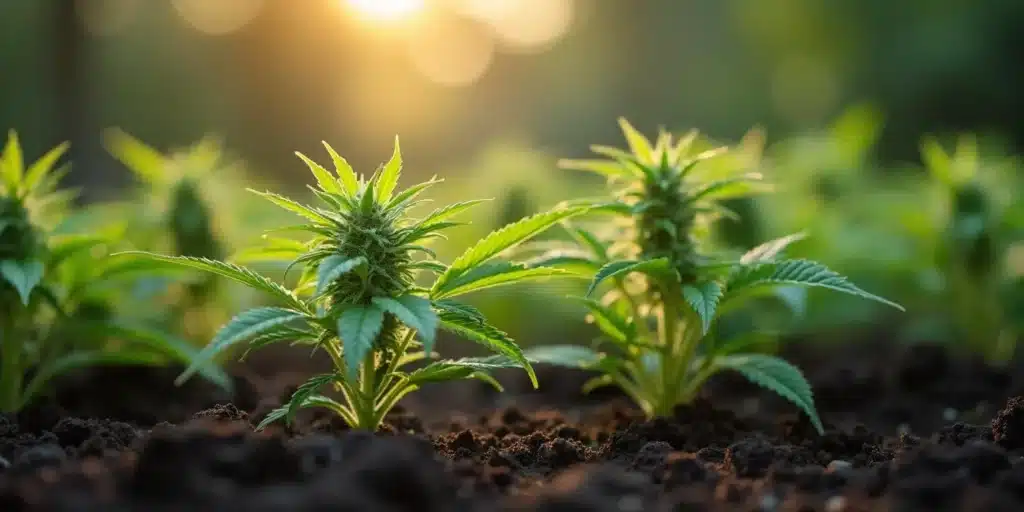
Elevating Your Grow: Selecting the Right Strain Clones
Now that you understand how to care for and maximize your clones, let’s explore some strains ideal for different grow environments and goals.
Gruntz
Gruntz is a popular indica-leaning hybrid, well-known for its resilience and strong structure. This strain adapts well to indoor setups, producing dense, resinous buds with a fruity, candy-like aroma. It’s an excellent choice for growers seeking high yields and a relaxing, euphoric effect.
Gelato 33
Gelato 33 is a favorite among cultivators for its balanced hybrid nature and visually striking buds. It thrives in both indoor and outdoor environments, making it a versatile strain for various grow setups. With its sweet, dessert-like flavor and potent effects, Gelato 33 is perfect for those looking for a strain that balances cerebral stimulation and physical relaxation.
Jelly Cake
Jelly Cake is a heavy-hitting strain that flourishes in indoor environments. This indica-dominant hybrid produces large, dense buds coated in sticky resin. Its rich, sweet aroma combined with relaxing effects makes it a go-to for growers who want a strain that offers both impressive yields and high potency.
Where to Buy Quality Pot Clones Online
Finding a reputable online supplier is crucial for obtaining healthy, high-quality clones. Look for sellers that provide clear images, detailed strain information, and customer reviews. A trusted supplier will offer a range of strains.
Verifying Supplier Reputation and Health Guarantees
Before purchasing, research the supplier’s reputation. Check for customer testimonials and online reviews to gauge their credibility. A reputable supplier will also offer health guarantees, ensuring that their clones are pest-free and ready to grow upon arrival. This assurance gives you peace of mind and confidence in your investment.

